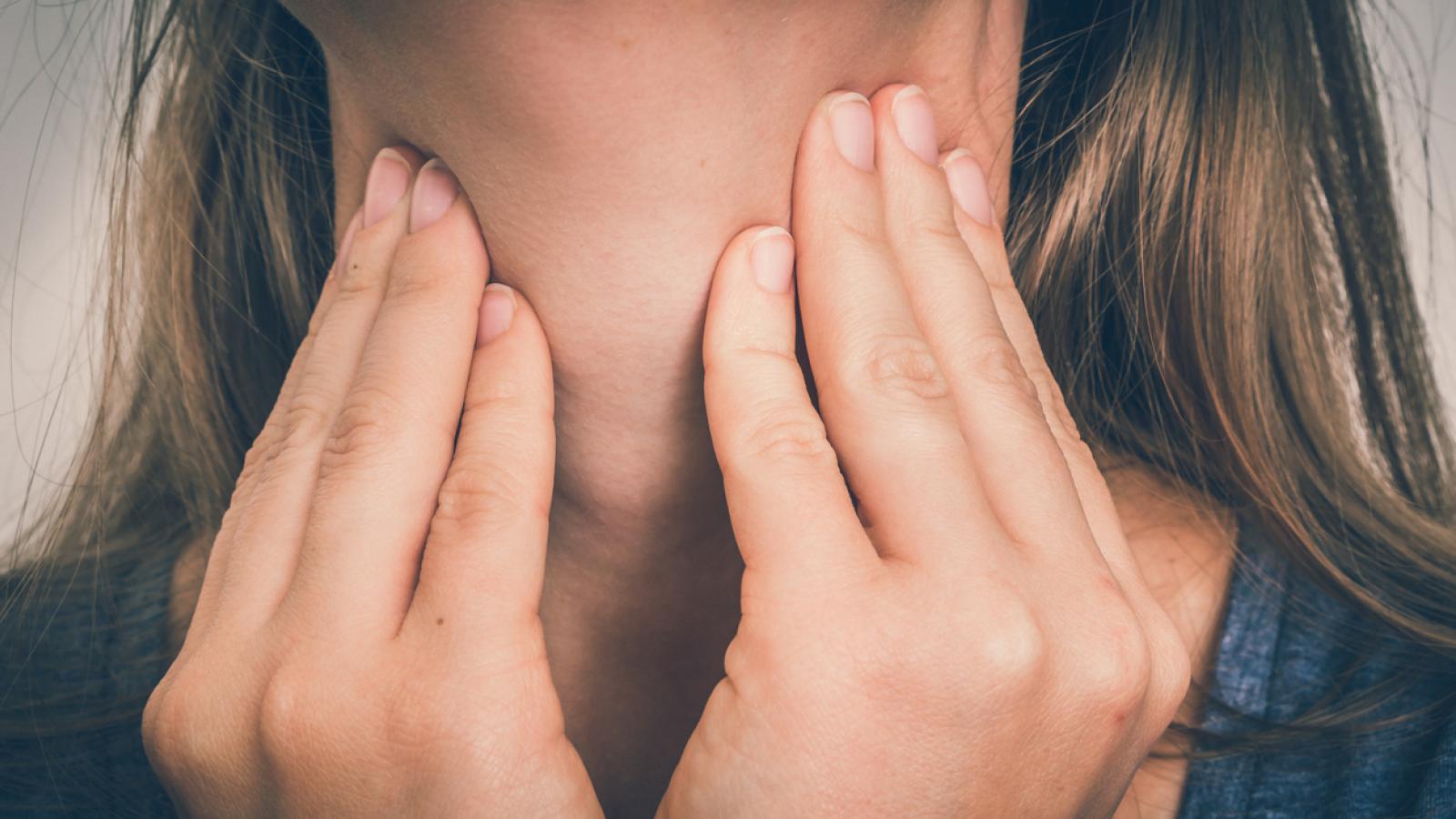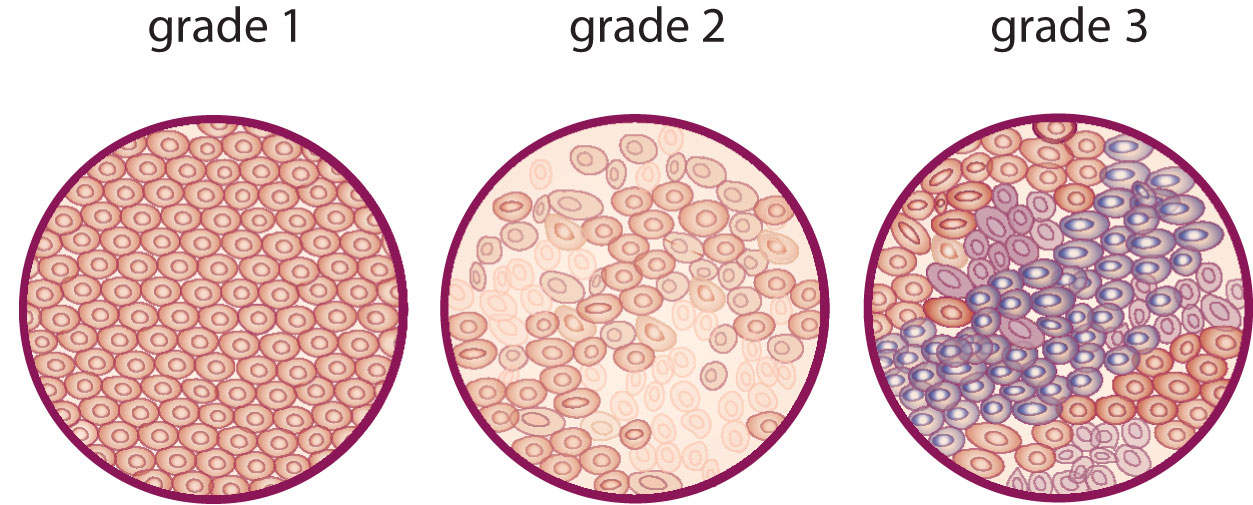Symptoms and diagnosis of thyroid cancer

On this page:
Symptoms of thyroid cancer
- A painless or painful lump in your neck, which gradually gets bigger
- Difficulty in swallowing or breathing
- Changes to your voice, including hoarseness
All these symptoms can be caused by conditions other than cancer and most lumps in the front of the neck are not cancer. It’s still important to go to the GP and get any unusual changes checked out.
Symptoms may be vague at first because thyroid cancer usually grows very slowly.

Can I be screened for thyroid cancer?
Testing for thyroid cancer when you have no symptoms is called screening. There is no national thyroid cancer screening programme in Ireland at present. If you are concerned about thyroid cancer or have a family history of medullary thyroid cancer, talk to your GP.
Diagnosing thyroid cancer
Your family doctor (GP) will talk to you about your symptoms. They may do some tests. For example, feeling your throat or blood tests.
Your GP will refer you to hospital if they think you need more tests. Other tests you might have include:
- Fine-needle aspiration: A needle is passed into the swelling in your neck to take samples of the cells. The cells are then examined under the microscope. Sometimes an ultrasound scanner is used to guide the needle to the right place.
- Surgical biopsy: Your doctor will remove a small sample of your thyroid gland under local anaesthetic through a small cut in your skin. The cells are looked at under a microscope in the lab to see if there are any cancer cells.
- Ultrasound scan: A device like a microphone passed over your throat to check the size and shape of your thyroid and if any lumps are present.
- Blood tests: Blood tests can check your thyroid hormone levels. For example, the levels of thyroid-stimulating hormone (TSH) in your blood. This can tell if your thyroid gland is not working well. Calcitonin is a hormone produced by medullary thyroid cancers that can be measured in the blood as well. The level of calcium in your blood will also be checked.
- Thyroid radioisotope scan: For this test, a small amount of a slightly radioactive liquid (iodine or technetium) is injected into a vein in your arm. After 20 minutes, you lie on a couch and a machine called a gamma camera is placed over your neck. Nodules that have cancer cells do not usually absorb the radioactive liquid as well as normal thyroid cells. As a result, it can show if the nodules are overactive (hot) or underactive (cold).

An endocrinologist is a doctor who specialises in treating problems with the thyroid and other glands.
For more information
Phone
1800 200 700



